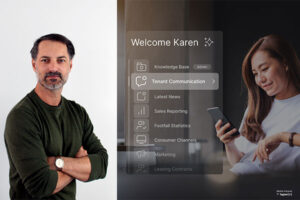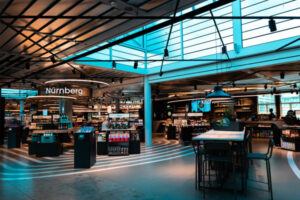The Green Recovery is an alliance of 180 political decision-makers, business leaders, trade unions, NGOs, and think tanks, calling for a renewed commitment by all stakeholders to address the social and economic consequences of the coronavirus outbreak, in addition to the long-term climate change initiatives.
Jesper Brodin, CEO, Ingka Group and Christiana Figueres, the former Executive Secretary of the United Nations Framework Convention on Climate Change, share their views below on the importance of a Green Recovery post COVID-19.
Leaders across business and government face a crossroads as they choose how to rebuild economies and societies impacted by COVID-19. We’re facing a critical decade, maybe the most important for humankind and if history has taught us anything, it is that the most dangerous thing we could do is to think short term. Leaders must now join together to build back the greener, more resilient future we want to be a part of. This is our common purpose.
Right now, life looks very different to what many of us had imagined a few months ago. The pandemic is affecting every one of us in different ways – as individuals, communities, family members and as businesses. From human loss to economic hardship, nothing could have prepared us fully for today’s reality.
Just a few short months ago, climate change was at the top of the global agenda; it was great to see leaders across society working together to address the biggest threat to our shared future. And then another crisis hit.
The COVID-19 pandemic respects no borders, and it calls for exceptional leadership across society, government and businesses. Everyone has needed to contribute to tackle the initial phase to save as many lives and livelihoods as possible and restart the economy. But this must not now be at the expense of other pressing global priorities. If history has taught us anything, it is that the most dangerous thing we could do is to think short term – it is critical that we now create the future we want to be a part of and build back better.
Climate change is a looming crisis that threatens our way of life, our resilience and our safety. We must not lose sight of this or forget about our commitments and actions to tackling it. The next hot summer with wildfires and heat waves, flooding and drought will painfully remind us that we keep on warming the one planet we share.
The time for talk is over. We need to act, and we need to act now.
It is key that policy makers see this as a possibility to contribute to solving two crises at once. With trillions now being poured into the global economy, we must make sure we direct the flow of money into creating jobs and systems that will help us recover in a way the next generations will benefit from. We must balance up the short-term needs with building resilient thriving communities for the long term.
There is no conflict between boosting employment, reviving the economy, building long-term resilience and tackling the climate crisis by accelerating the transition towards a net zero carbon and just economy. We know that this will create jobs today that will be relevant for generations to come. The report from the New Climate Economy, shows that shifting to a low-carbon economy could create a $26 trillion growth opportunity – and 65 million new jobs – by 2030.
Sustainability also makes business sense. We have already seen that those companies who had built ESG standards into their business models are managing better through the crisis – better financial management, better relationships with co-workers and customers, and better control of their supply chains which has made them more resilient.
There have been some positive signs so far. A majority of people across 14 countries in the G20 agree that the economic recovery should “prioritise climate change”. In France the government is attaching environmental conditions to the revival of their economy, with an Air France state loan dependent on it reducing some domestic flights to become a more “environmentally respectful airline”.
CEOs and business leaders across the board have also been reinforcing their social and environmental responsibilities, and investors are warning companies not to retract from their commitments. As leaders, we need to make sure that we follow through on our ambitions and that others follow with action that delivers a transition to a net-zero economy.
We are aware this is a huge ask on leaders who are already overstretched. COVID-19 and the reaction to it have illustrated the importance of interconnectedness and urgent global cooperation. When the crisis tempts us to turn inwards, we must turn outwards. In a time of isolation, reaching out and connecting is more important than ever.
Together, we must shift old systems into new, while investing in green technologies and solutions that are clean. Together, we must rethink existing subsidies schemes and find ways to put a price on pollution. Together, we must step up our climate ambition and deliver on our promise – the Paris Agreement. Together, we must transform business models, set ambitious climate targets and sign up to the 1.5°C target.
Together, we can choose a new path to a brighter, greener, more resilient future. And we must choose it now.






